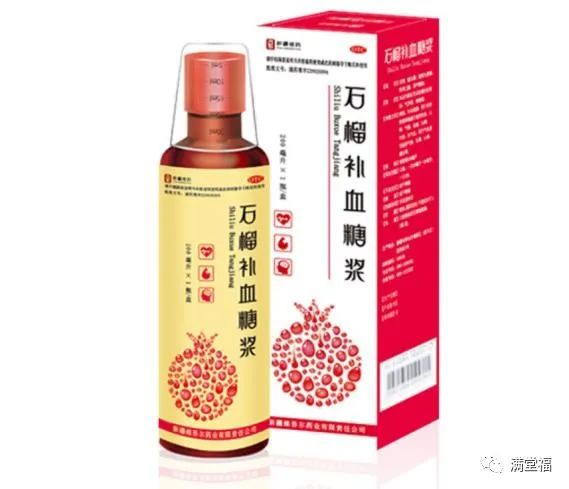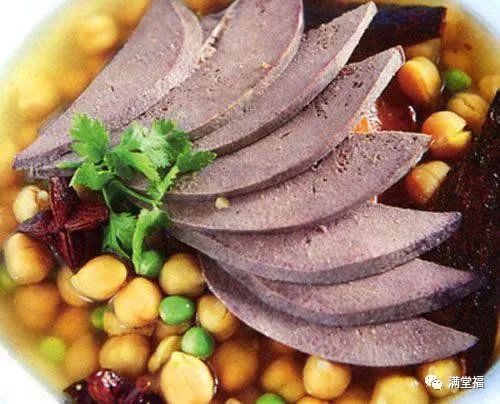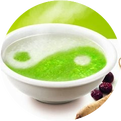In general, Traditional Chinese Medicine (TCM) believes that Qi and Blood are fundamental to the human body. When Qi and Blood are abundant and flowing smoothly, diseases do not arise. Conversely, if there is a deficiency of Qi and Blood, it can lead to feelings of fatigue and weakness.
If Qi and Blood are insufficient for a long time, it can lower the body’s immunity, making one more susceptible to illness. Conditions similar to a sub-healthy state, such as anemia and palpitations, are all considered manifestations of Blood Deficiency in TCM.
What Are the Symptoms of Blood Deficiency?
Blood Deficiency is a common clinical syndrome in TCM, referring to a pathological state where there is insufficient blood, leading to a decline in the nourishing and moistening functions of the blood, resulting in malnourishment of the organs, meridians, and tissues.
These symptoms are indicative of Blood Deficiency:

-
Pale complexion, pale tongue, dry and dull facial skin without luster;
-
Uneven nails, brittle nails, and cramps are manifestations of blood not nourishing the tendons;
-
Some individuals may experience dizziness and blurred vision, as insufficient blood supply to the head can lead to dizziness;
-
Blurred vision; due to insufficient Qi and Blood, the eyes do not receive adequate nourishment, leading to dryness and discomfort;
-
Insufficient blood supply to the heart can cause palpitations and numbness in the hands and feet;
-
Some women may experience cold intolerance, accompanied by scanty menstrual flow, pale menstrual blood, or even amenorrhea.
How to Regulate Blood Deficiency?
1. Dietary Adjustments
Dietary regulation can help strengthen the spleen and stomach; normal spleen and stomach function is essential for the proper production of blood.
Regularly consume foods that nourish and tonify the blood, such as spinach, peanuts, lotus root, black fungus, chicken, pork, lamb, red dates, brown sugar, red beans, sesame, and black chicken. Fruits like mulberries, grapes, red dates, and longan are also recommended.
Additionally, avoid spicy, greasy, and cold foods in your diet.
2. Herbal Regulation
Many Chinese herbs have blood-nourishing properties, such as Shu Di Huang (Rehmannia Root), Bai Shao (White Peony Root), Dang Gui (Angelica Sinensis), Chuan Xiong (Szechuan Lovage Root), Gou Qi Zi (Goji Berries), and Huang Qi (Astragalus). These can be used as decoctions or teas under the guidance of a physician.
Additionally, Pomegranate Blood Tonic Syrup can be taken. This syrup is a brownish-red liquid that is effective in nourishing blood and enhancing brain function, used for anemia, palpitations, shortness of breath, anxiety, dizziness, etc., caused by an excess of abnormal bile. TCM uses it for symptoms like shortness of breath, dizziness, palpitations, and forgetfulness due to Qi and Blood deficiency. The recommended dosage is 20-30ml orally, three times a day.

Recommended Blood Nourishing Porridge and Soup
1. Xian Ren Porridge
Ingredients: 30-60g of He Shou Wu (Fo-Ti), 100g of glutinous rice, 3-5 red dates, and appropriate amount of brown sugar. First, boil the He Shou Wu, strain to obtain the concentrated juice, then add glutinous rice and red dates to cook the porridge. After it is cooked, add brown sugar and boil for another 1-2 times.
2. Yellow Soybean Stewed Pig Liver
Ingredients: 100g of yellow soybeans and 100g of pig liver. First, cook the yellow soybeans until 80% done, then add the pig liver and cook until done. This can be eaten twice daily for three weeks.

3. Rabbit Liver Soup
Ingredients: 1 rabbit liver, 20g of Gou Qi Zi (Goji Berries), and 20g of Nu Zhen Zi (Ligustrum Fruit). Boil with water and consume.
4. Pig Liver Puree
Prepare pig liver into a puree and cook until done; this can be consumed regularly.

